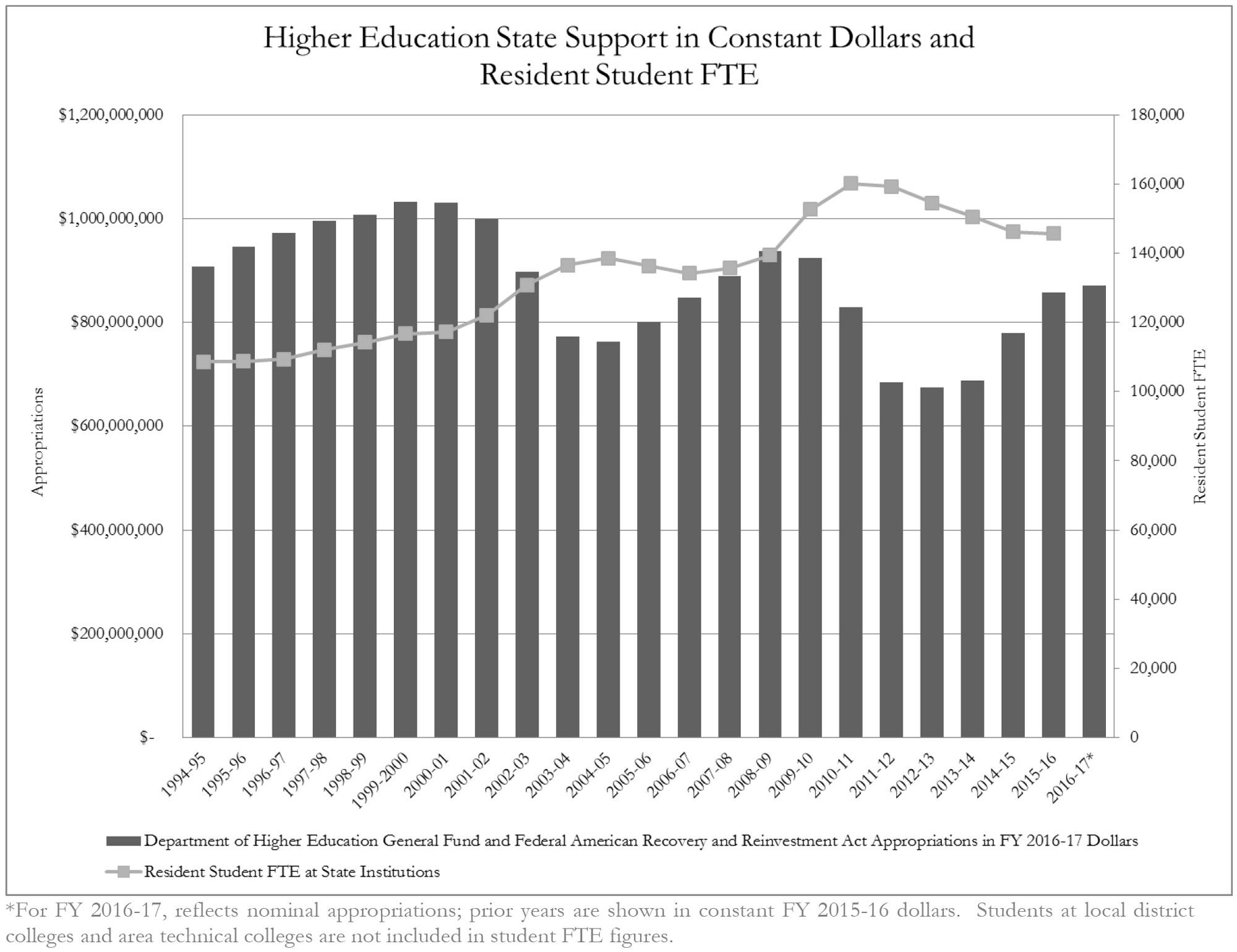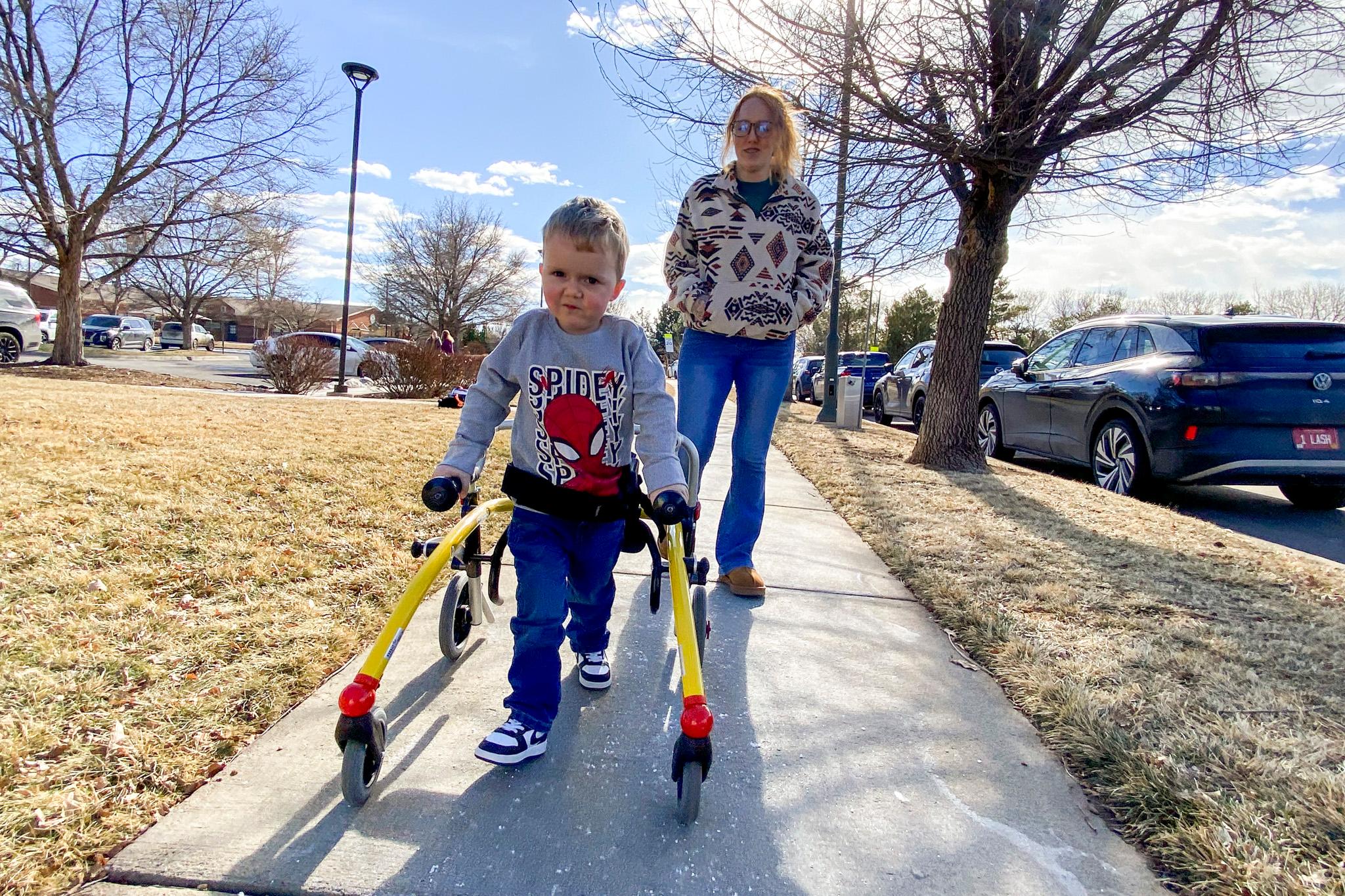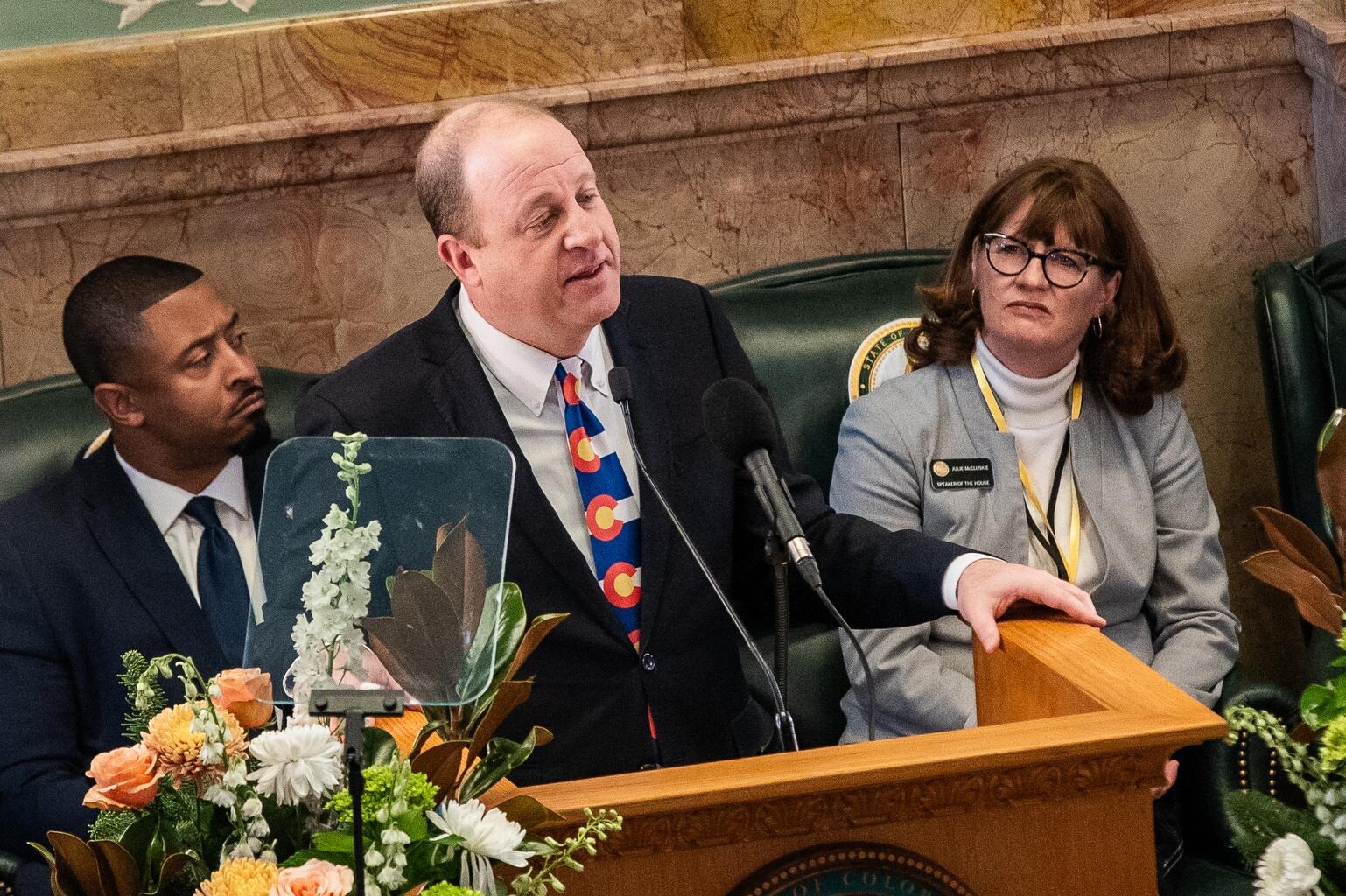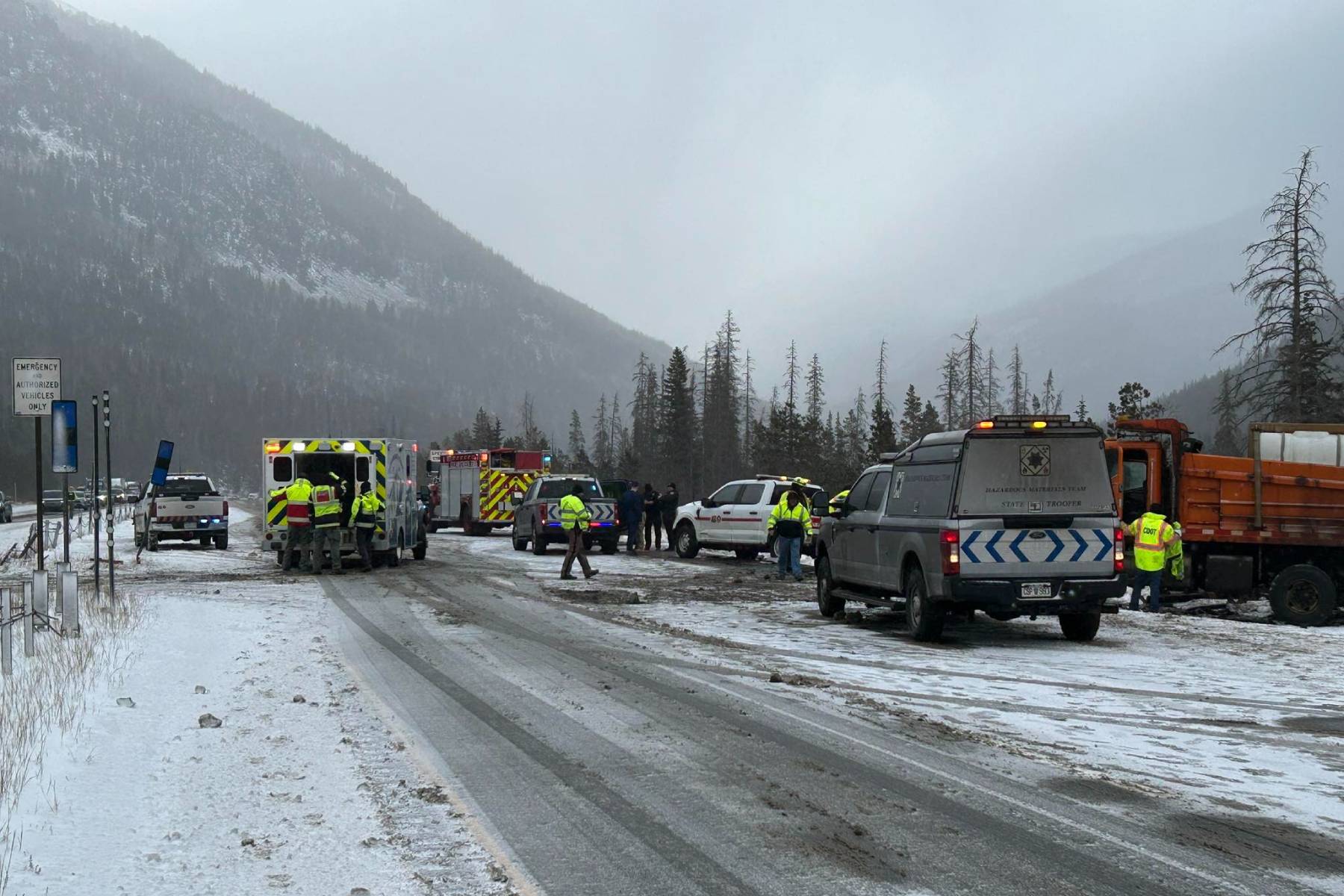
Colorado is one of the most educated states in the nation, ranking high in the percentage of adults who attended college and hold bachelor's degrees. But state funding for higher education isn't what it used to be -- according to the American Council on Education, state support shrank nearly 70 percent between 1980 and 2011. The same study says funding could dry up completely by 2019; so perhaps it's no coincidence that the revenue public colleges and universities here get from tuition has increased every year since 2007.

The measures schools are taking to adapt to the lack of state support, whether through public-private partnerships or innovative programs, were part of a Colorado Matters discussion on higher education. Included on the panel were:
- Bruce Benson, president of the University of Colorado
- Tim Foster, president of Colorado Mesa University in Grand Junction
- Tony Frank, president of the Colorado State University system
- Joe Garcia, former lieutenant governor and executive director of the Colorado Department of Higher Education and now president of the Western Interstate Commission for Higher Education (WICHE), a regional collective
- Stephen Jordan, president of Metropolitan State University of Denver
- Nancy McCallin, president of the Colorado Community College system
Conversation Highlights:
Metropolitan State President Stephen Jordan on the state of higher education in Colorado amid studies predicting that state funding may disappear entirely:
"I think we are hanging on by a thread ... I don't see anything on the horizon that would make that prediction not come true."
CSU President Frank on the choice being made in higher education:
"(We've) transferred the cost of education from our entire population, where we used to consider it a public good, now to the individual family, essentially making a choice to make it an individual consumer commodity."
CU President Bruce Benson on the university's paying $5 million for naming rights on the RTD A Line:
"People say, 'Why didn't you take that (money) and reduce tuition?' I did the math one day ... and I think it came out to about $7 per credit hour ... we're trying to tell all the people who come to Colorado who we are and what we're doing."
Colorado Community College President Nancy McCallin on innovative programs:
"Since 1994, we've had significant online presence ... we were online prior to it becoming the latest 'vogue' idea ... it's a different way to deliver education -- it's not necessarily less expensive, but it meets students where they want to be; it's much more flexible for them."
Colorado Mesa President Tim Foster on creating new programs:
"People don't understand whenever you stand up a new program it's like standing up a small business ... it will lose money at the outset and it then takes time for it to cover its expenses. We're always trying to find those opportunities and then be judicious and not pick any losers."
WICHE President Joe Garcia on colleges competing with each other for a smaller pool of students:
"Part of the reason education costs more is because full-pay students want certain things and the institutions want those full-pay and non-resident students (who pay higher tuition and fees than in-state students) ... there's a decreasing supply of them, and they need them to help subsidize the services they provide to the low-income and first-generation students who are an increasingly larger percentage of the student population."









